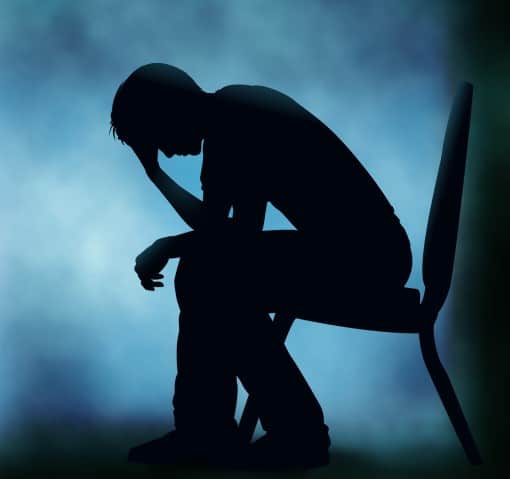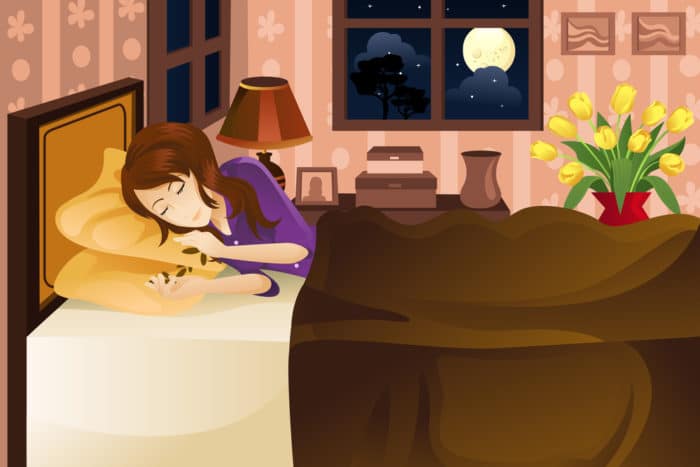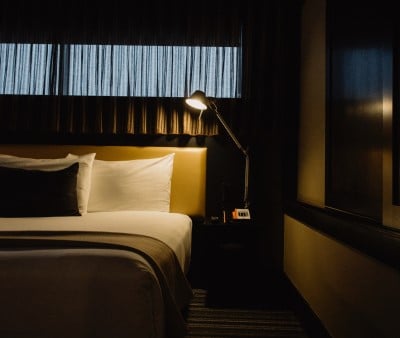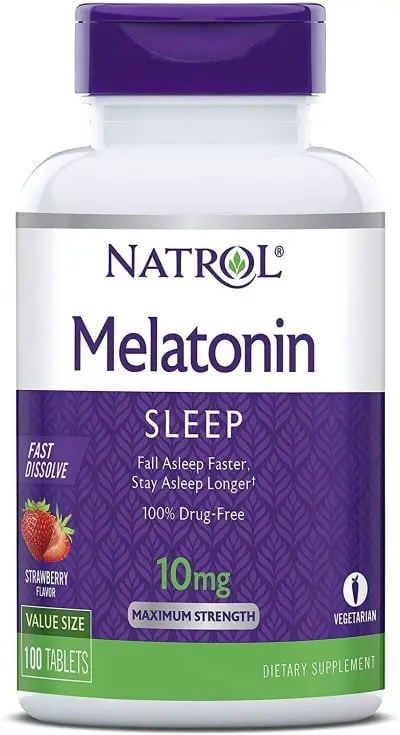
Can jet lag cause depression? – 3 Reasons why it might
By Jason Wooden, PhD | August 11, 2020
With more people traveling by air than ever before, it’s not surprising some are wondering whether jet lag can cause depression. Jet lag by itself is tough enough, but depression can make things worse.
Depression may be triggered from jet lag related insomnia, stress, or an out-of-whack circadian clock. The good news is there are practical things you can do including light therapy, physical activity, sleep hygiene, and natural sleep supplements.
Depression from jet lag is more important than you think
With more people on the move than ever before, there’s more and more people suffering from the downsides of jet lag.
Whether it’s for business or for pleasure, travel can leave you feeling drained and out of sorts.
Most people are familiar with the sleep-related issues that happen when traveling across time zones, but what about depression?
In 2017, over a billion passengers flew on an air plane which means there were likely a ton of people dealing with the effects of jet lag on any given day.
With numbers like that, you’re likely not the only one wondering whether jet lag can cause depression.
Depression affects over 18 million adults in the US and more than 264 million people around the world.
It’s hard to say for how many travel and jet lag is a factor.
All the same, feeling over tired and emotionally down can take the fun out of trips. If you’re traveling for work, it can make it harder to get things done.
Jet lag by itself is bad enough.
Jet lag with depression can make things tougher.
Let’s take a look at the what we know about it and what you can do about it.
Noticed any of these signs of depression?
- persistent sad, anxious, or “empty” mood
- hopelessness or pessimism
- irritability
- feelings of guilt, worthlessness, or helplessness
- loss of interest in hobbies and activities
- decreased energy
- moving or talking more slowly
- restlessness
- difficulty concentrating, remembering, or making decisions
- difficulty sleeping, early-morning awakening, or oversleeping
- appetite and/or weight changes
- thoughts of death or suicide, or suicide attempts
- aches or pains, headaches, cramps, or digestive problems without a clear physical cause or that do not ease even with treatment
Source: NIH
What is jet lag?
Before we get to the link between jet lag can cause depression, let’s talk about what actually happening in your body when you get that overtired feeling.
Jet lag is what happens when you travel across times zones and your body’s clock gets out of sync with local time at your destination. The more time zones you travel across, the worse it can get.
Jet lag symptoms
- Trouble falling asleep
- Feeling tired or disoriented
- Being unable to function normally during the daytime
- Mild sickness
- Stomach problems
- Menstrual symptoms in females
Source: American Academy of Sleep Medicine
If you’re wondering why it’s worse when you travel east, that’s because you lose time.
For many, it may take days for the body’s clock to reset to the new time zone. Meanwhile, you’re left feeling wiped out, groggy, unable to get things done, and moody.
And for some people it’s even worse as they experience depression.
Let’s talk about the reasons why this can happen.
Reason #1: The insomnia-depression connection
Did you know that getting behind the eight ball on sleep has been linked to depression, especially if your insomnia is ongoing?
Since insomnia is one of the most common jet lag symptoms, it’s definitely one of the ways jet lag can cause depression.
It turns out insomnia is also a common sign of depression.
The links between sleep and depression are pretty strong and 75% of depressed patients struggle with insomnia. In fact, insomniacs have 10 times the risk of getting depressed compared to people who sleep well.
What this means is that as you get more jet lagged and overtired, you could be increasing your risk for depression. If you’re already a poor sleeper, jet lag can worsen your insomnia and put you even more at risk.
And since depression can increase your risk for insomnia, you can get into a downward spiral if you’re not careful.
Reason #2: The stress-depression connection
The stress of travel and jet lag is another reason jet lag may cause depression. That’s because there’s a connection between stress and depression.
It’s not uncommon to get anxious during a trip with all the hassles of travel – getting through security, making your flights, picking up luggage, and getting where you need to be once you’re on the ground.
And let’s not forget the stress of being cooped up in a metal tube for long periods.
Try dealing with all of this when you’re overtired.
With jet lag, the stress can go WAY up, especially on longer trips.
That’s a lot of stress and some people handle this better than others.
So, what’s the connection to jet lag and depression?
Stress is a normal reaction to that things that happen in your life whether they are good or bad. Also, we’ve all heard of that adrenaline-fueled flight or fight response.
The problem is when there’s too much stress for too long it can affect your body and mind in unhealthy ways.
It turns out high levels of stress has been linked to depression. Stress triggers biochemical changes in the body which can affect the brain and lead to mood changes including depression.
What’s worse, stress and anxiety can make it harder to fall asleep which can aggravate insomnia…and we’ve already talked about how insomnia is a risk factor for depression.
So, that’s another way jet lap can cause or worsen depression.
Reason #3: The body clock – mood connection
Okay, here’s the final way jet lag can cause depression, especially if you’re already at risk for anxiety and depression.
It has to do with your body’s circadian clock which runs in the background to make sure things happen at the right time. It’s tide to the cycle of night and day.
The circadian clock is what controls your sleep-wake cycle.
Did you know that research has shown that when the body’s clock is off, it can affect your health and how the brain works?
In studies, brain effects have been seen in people who work on rotating shifts and flight attendants who frequently deal with jet lag.
Research has also shown that jet lag can trigger depression symptoms in people with a history of psychiatric illness.
So, what does jet lag do to the brain to trigger depression?
It’s believed to happen because the circadian clock also helps regulate your moods. In fact, mood disorders are often associated with problems with things controlled by the clock such as sleep.
The more severe your jet lag is the more your circadian clock can get out of whack and do a poorer job regulating your moods.
And that’s something which can increase your risk for mood disorders like depression.
What to do if you’re worried about jet lag and depression
Now we get to the good news – there are plenty of practical things you can do to prevent jet lag from triggering depression.
There are remedies worth a try to prevent and manage the symptoms the jet lag, help reset your body clock, and get your sleep back on track.

1) Before you travel
Experts recommend that you exercise, eat healthy, and get plenty of sleep. You may also want to start going to bed an hour or two later (if traveling west) or earlier (if traveling east).
Try scheduling your flights to break up a long trip with a stop in the middle.

2) While you travel
To help with resetting your body, change your watch to local time at your final destination. You should also avoid alcohol and caffeine.
Both may aggravate jet lag symptoms and make it harder to adjust to the new time zone. Don’t forget to hydrate and to periodically walk around.

3) Sleep hygiene
When traveling, it’s easy to get away from your normal sleep routine and habits. That makes it important that you’re practicing good sleep hygiene, the everyday things you do that set the stage for restful sleep.
Sleep hygiene will give yourself the best chance to recover and get your sleep back on track.
Once you reach your final destination, you should:
• go to bed and wake up on time
• avoid naps
• get out and do something physical
• avoid large meals, alcohol, or stimulants such as caffeine in the evening
• give yourself time to wind down before bed
• keep your sleep environment quiet, dark, and cool
To make your new sleep environment more sleep-friendly, you may have to try ear plugs to block out noisy neighbors or a face mask for excessive night time lighting.

4) Natural sunlight
Light is what sets your circadian clock. To help rest your clock to local time, get out and absorb sunlight during the morning and afternoon.
Experts recommend at least 30 minutes of sunlight each day preferably without sunglasses as they limit the eyes access to full sunlight. Getting some sunshine can also boost your moods.

5) Light therapy
Light boxes designed to mimic outdoor light are another way to reset the body clock. They have been shown to be helpful in clinical studies. While the original boxes were bulky, there are now portable ones small enough to take on a trip.
Better yet, there are also high tech light therapy glasses which use small light-emitting diodes to bring the light source closer to the eye. Depending on the manufacturer, they typically recommend you wear the glasses for 20 to 60-minute sessions to help your body adjust to a new time zone.

6) Physical activity
Exercise is another way to fight jet lag. It’s long been known to improve sleep. Recent research suggests that moderate exercise can more directly fight jet lag.
What’s more, many studies have found that exercise can also directly help with depression. So, get out for a brisk walk or run during the day. You’ll get the added benefit of natural sunlight exposure.

7) Melatonin
Melatonin is a hormone that’s involved in the sleep-wake cycle. Research suggests that melatonin supplements can help with jet lag.
Be sure to check with a doctor about whether it’s right for you and how to use it on your trip.

8) Homeopathic remedies
There’s a wide variety of jet lag supplements you can get online and at local health store. Keep in mind that most haven’t been clinically tested but may still help.
A naturopathic physician or herbalist can help you find a brand and formulation worth trying.
Learn more:
Homeopathic Remedies (Verywell)
Clinically tested natural sleep aids
You may also be interested in:
Sources:
1. “Depression Facts”, Hope for Depression Research Foundation website
2. “Depression”, 2020, World Health Organization website
3. Sleep disorders as core symptoms of depression. Dialogues Clin Neurosci. 2008;10(3):329-36.
4. “Depression and Sleep”, 2020, National Sleep Foundation website
5. “What is Adrenaline?”, Endocrine Society website
6. Chronic and acute stress and the prediction of major depression in women. Depress Anxiety. 2009;26(8):718-23.
7. The Effects of Psychological Stress on Depression. Curr Neuropharmacol. 2015;13(4):494-504.
8. “Circadian Rhythms”, NIH website
9. Chronic Jet Lag Simulation Decreases Hippocampal Neurogenesis and Enhances Depressive Behaviors and Cognitive Deficits in Adult Male Rats. Front Behav Neurosci. 2020 Jan 8;13:272.
10. A clockwork web: circadian timing in brain and periphery, in health and disease. Nat Rev Neurosci. 2003 Aug;4(8):649-61.
11. Chronic ‘jet lag’ produces temporal lobe atrophy and spatial cognitive deficits. Nat Neurosci. 2001 Jun;4(6):567-8.
12. Circadian rhythm disruption and mental health. Translational Psychiatry volume 10, Article number: 28 (2020)
13. “How Letting More Light into Your Life Can Improve Mental Health and Wellbeing”, 2018, rtor.org
14. The Benefits of Exercise for the Clinically Depressed. Prim Care Companion J Clin Psychiatry. 2004;6(3):104-111.
Connect with us:
About Us
Better Sleep Simplified® was founded as a place for you to get clear and well-researched information.
Our goal is to make sure you know about your options so that you take action sooner rather than later.
Check us out on YouTube:
Watch and Learn
Helpful sleep tips, interesting sleep facts and statistics you want to know about
Affiliate Disclosure
This site is a participant in the Amazon Services LLC Associates Program and other affiliate advertising programs designed to provide a means for sites to earn advertising fees by advertising and linking to them.
Important: BetterSleepSimplified.com is for informational purposes only and is not intended or implied to be a substitute for professional medical advice, diagnosis, or treatment. Always consult a physician for sleep and health concerns. See additional information.
